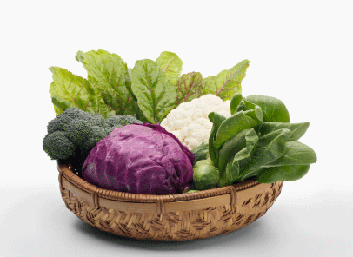Nutrition: Cruciferous veggies may help boost immune system
It’s the time of year when it seems like everyone has a cold. I’m waiting for my turn to get

It’s the time of year when it seems like everyone has a cold. I’m waiting for my turn to get the sniffles, but with the hope that my immune system can fight off any bugs that might come my way. Now, researchers at The Babraham Institute in Cambridge, U.K., have shown that eating green cruciferous vegetables’from bok choy to broccoli’helps maintain a chemical signal in our body that is key to keeping the immune system working at its best.
After feeding healthy mice a diet low in vegetables for two to three weeks, the researchers found that 70 to 80 percent of the immune cells in the gut and the skin (called intra-epithelial lymphocytes) had disappeared. With reduced numbers of these key immune cells, the mice showed lower levels of antimicrobial proteins, heightened immune activation and greater susceptibility to injury, according to the research reported online in the journal Cell.
With that in mind, it wasn’t difficult to load up on cruciferous vegetables at the market this past weekend: Stems heavy with brussels sprouts, piles of broccoli and cabbage, and amazing romanesco (pale green heads with elaborate spikes, that are actually a variety of cauliflower). Now it’s just a matter of cooking them up this week, with recipes like Brussels Sprouts with Walnuts and Arugula, Broccoli, Cauliflower and Leek Soup and Braised Cabbage with Apple and Mustard, or with ideas sparked by 11 ways to eat dark green vegetables.
Not convinced it’s worth adding more of these veggies to your diet? Here are five (more) reasons to eat cruciferous vegetables.
What are some of your favourite ways of preparing these flavourful vegetables?
Related:
‘ 11 ways to eat dark green vegetables
‘ 5 reasons to eat cruciferous vegetables
‘ 10 ways to sneak more veggies into your diet




